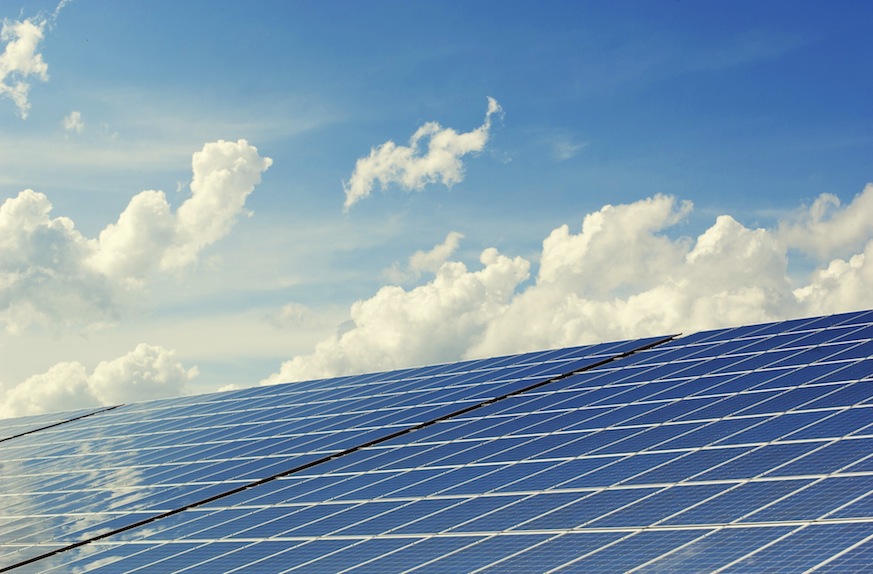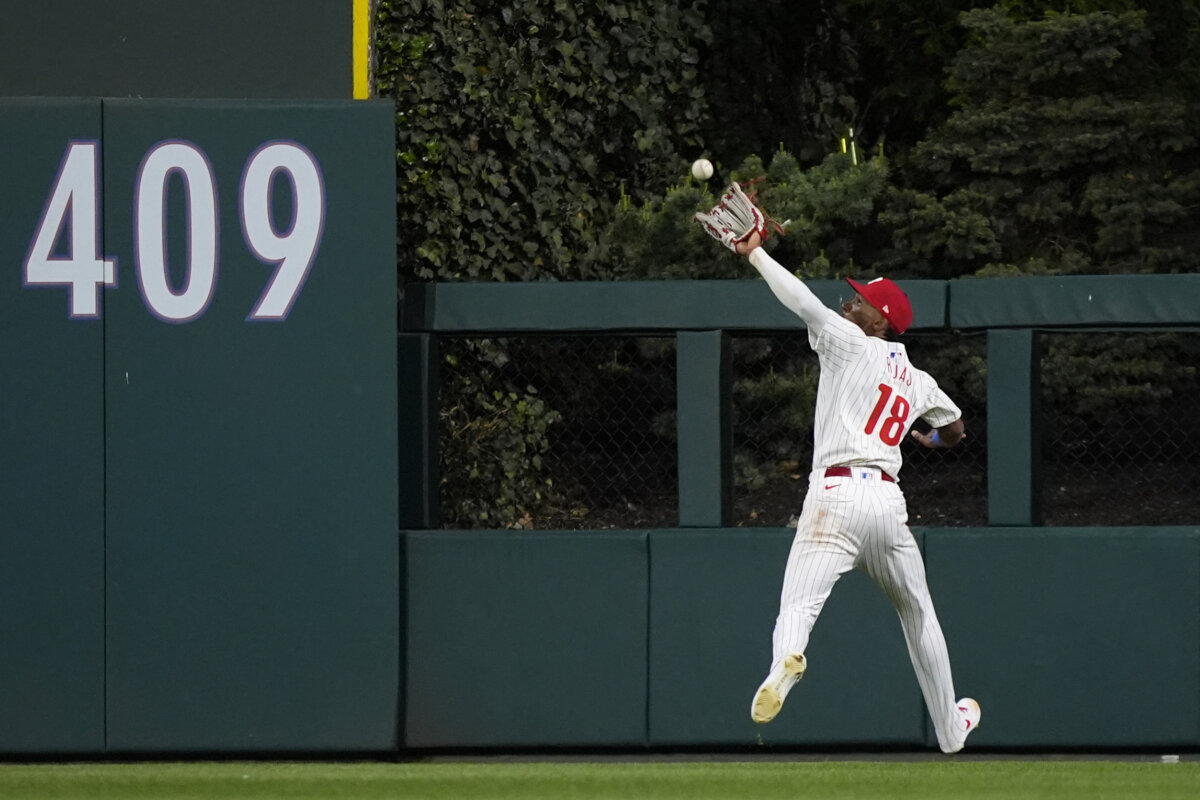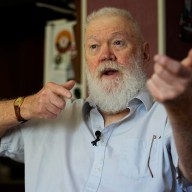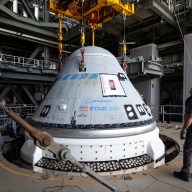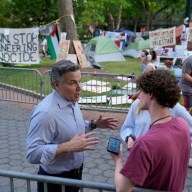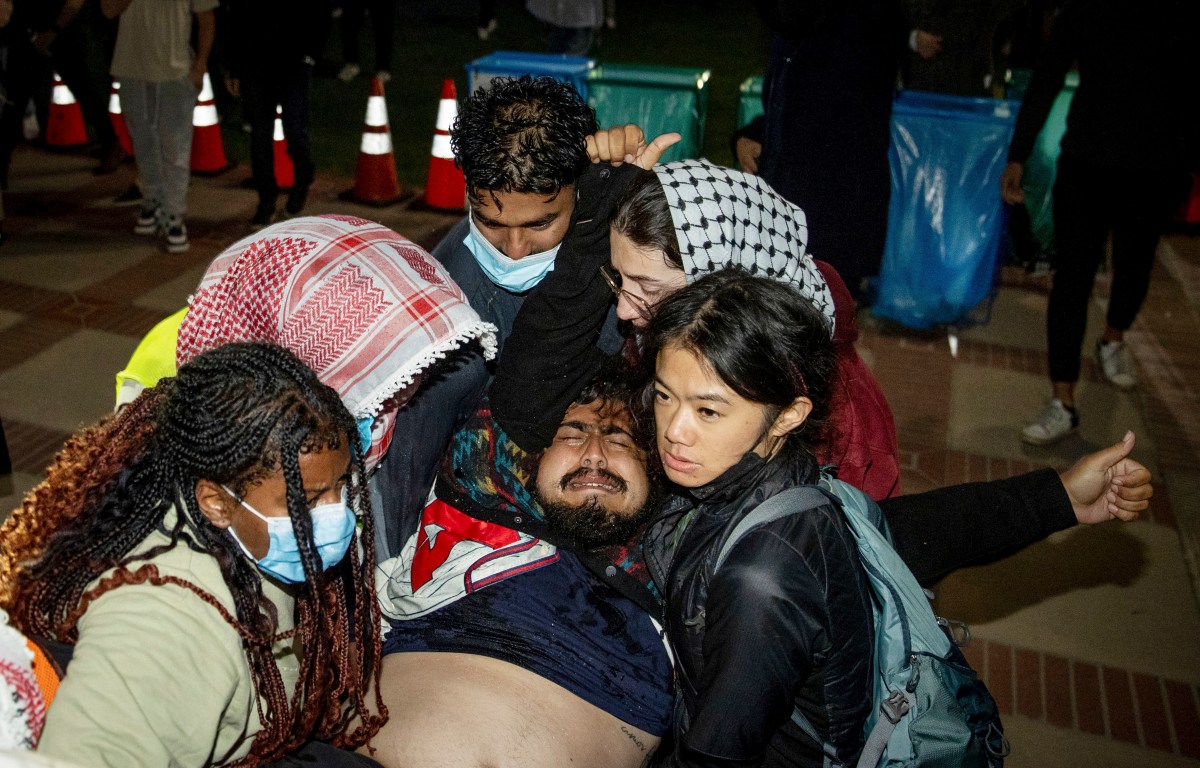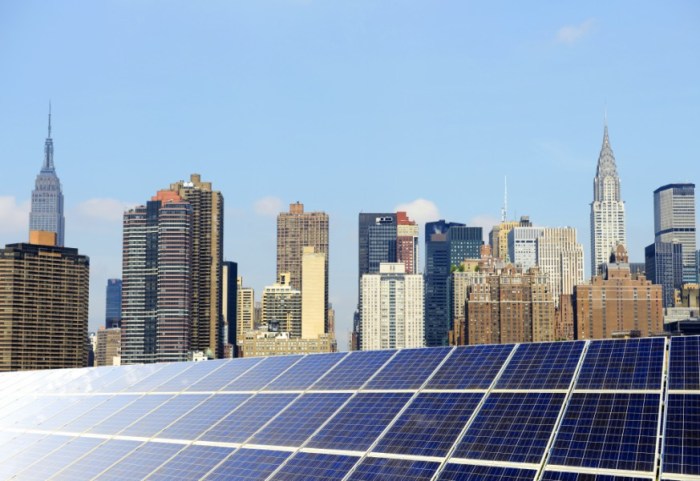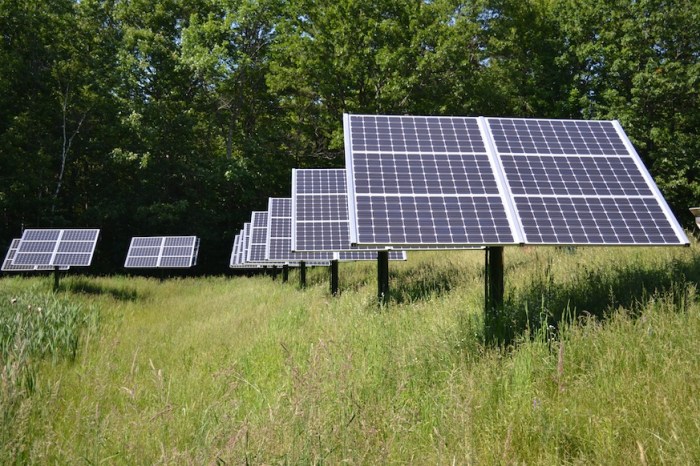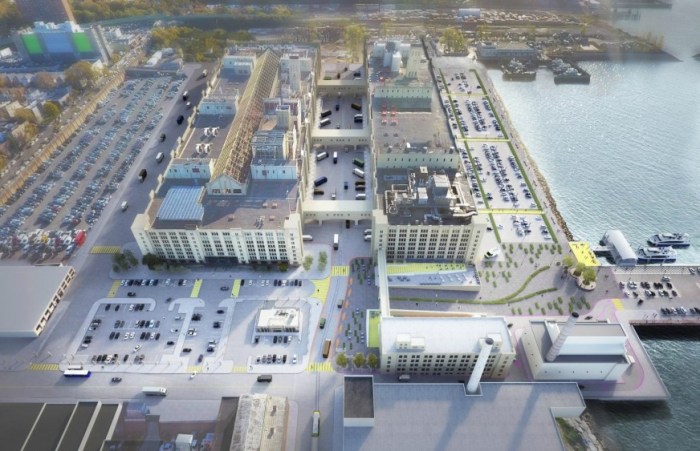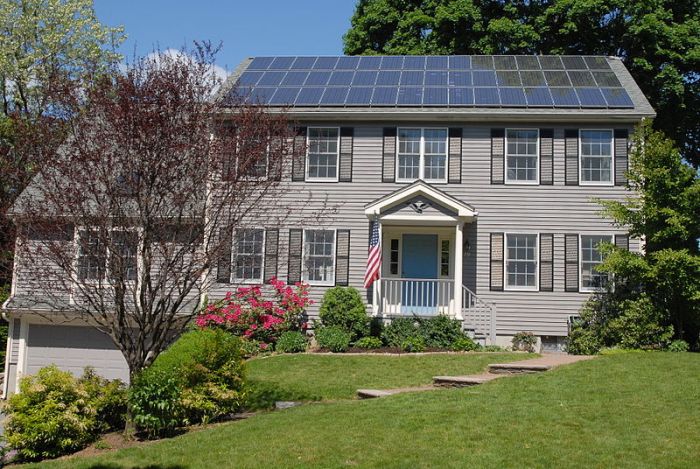We’ve all heard how solar panels on your roof can help lower your electricity bills — and help the environment — but how can you get in on that if you rent an apartment or live somewhere that’s often in the shade?
There is a solution: community solar farms. Environmental nonprofit Earth Day Initiative is bringing the first such rooftop farm to New York City.
Community solar is a model for how to make renewable energy more common all over the country, said John Oppermann, executive director of Earth Day Initiative.
“This is kind of a game changer,” he said. “It’s this amazing development in the renewable energy market that allows people to really take things into their own hands to put solar into their own community, when they can’t necessarily put it on their own roof.”
Community solar has been implemented in a few places, but Oppermann said that Earth Day Initiative’s project is one of, if not the, first community solar farm in New York City.
“There have been a lot of people that have tried to do projects like this, and for whatever reason, they haven’t worked,” he said. “Land is at a premium in New York City, and it’s been difficult for people to get these projects off of the ground.”
The nonprofit is not the one constructing the solar farm, which will be located on a warehouse rooftop in Queens. One of their partners is undertaking those technicalities, and Earth Day Initiative is helping spread the word and get people aboard.
If you rent an apartment and can’t put solar panels on your roof, or maybe if you’re brownstone is always in the shade, you can still help solar energy expand. About 175 New Yorkers need to join to make the solar farm a reality. But how does it work?
“Basically we’re pooling everyone together in this community so they become temporary owners,” Opperman said. “They lease a specific portion of the solar community and support the development of one unified solar farm.”
Those who join the effort will have a monthly lease payment, establishing them as part-owners of the panels. New York City utility companies like ConEd will then purchase the electricity generated by the solar farm, and lease owners will see the benefits on their electric bills. There’s no upfront cost, according to the nonprofit, and the price of the lease will vary depending on how much electricity your home uses, which aligns with the number of panels you get.
“The amount of money you actually make [from the electricity] will often be more than your lease payment,” Opperman said.
About half of the spots in the community solar project are taken. For those considering being a part of the project, Opperman said it’s a great opportunity to be “one of the very first to join this project and to support solar in New York.” Once all the spots are filled, the farm should be built in a matter of months, he said.
Only a limited number can sign on because the electricity usage of the households involved has to match the capacity that the solar farm can generate. Hopefully, Opperman said, this will open the door to more solar farms here in the future.
“This model of community solar is so perfectly aligned to a place like New York City, where there’s obviously a lot of challenges to individuals installing new renewable energy,” he said. “I hope that this model really takes off, because people are eager. I think that if we can demonstrate that it’s feasible in New York City, we will get a lot of people really engaged to do more.”
If you’re interested in joining, check out earthdayinitiative.org.

